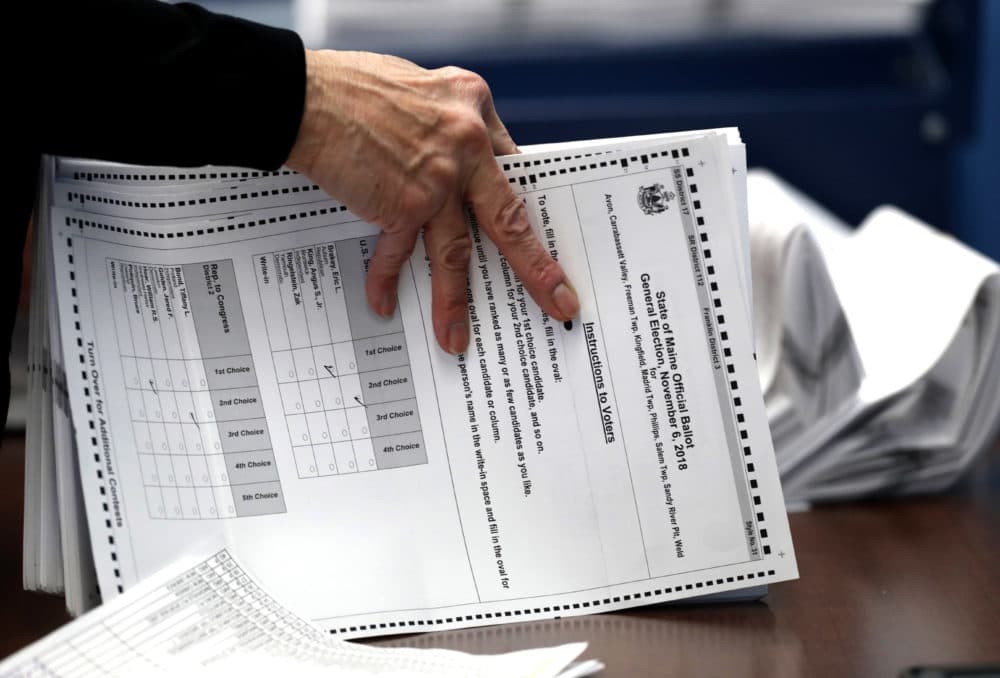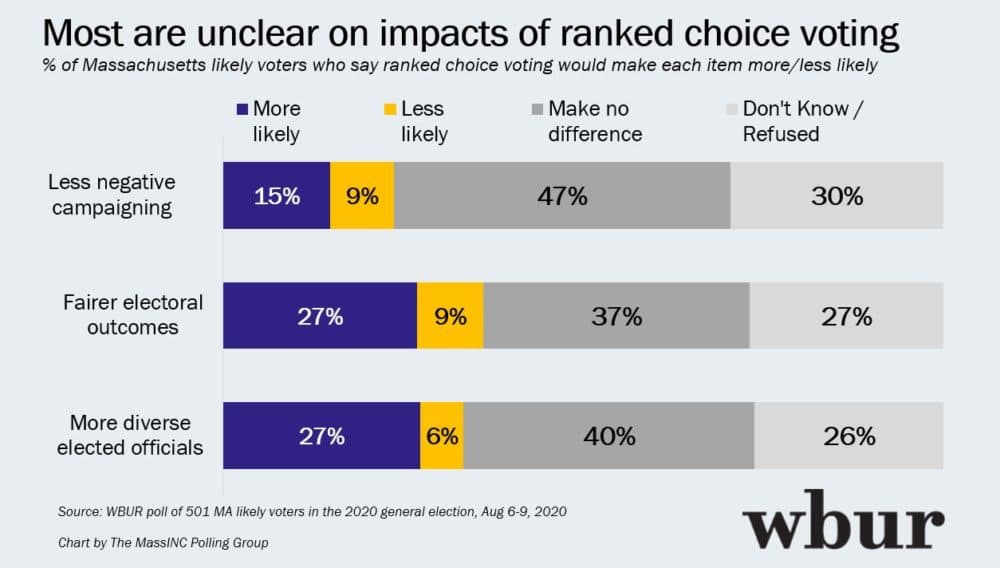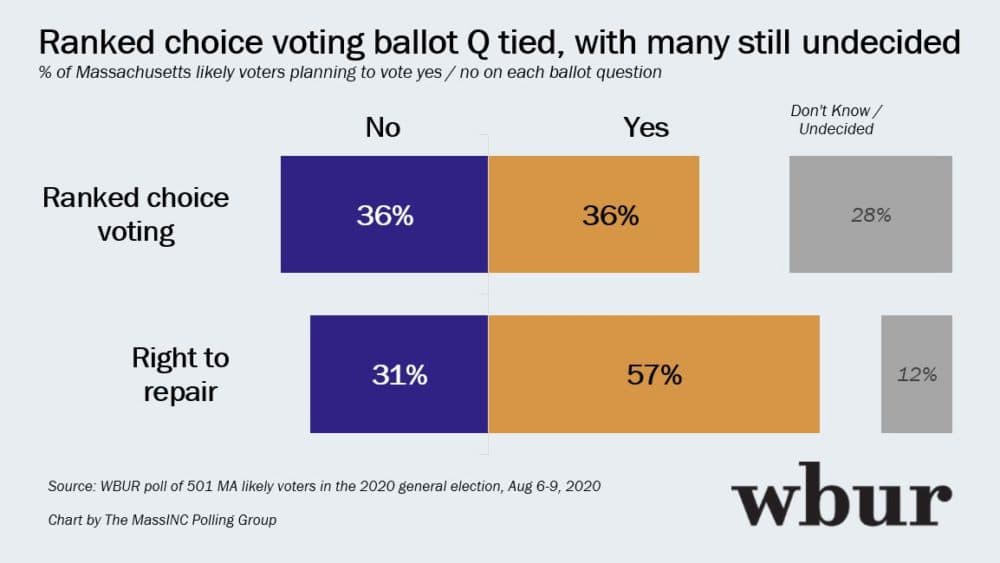Advertisement
WBUR Poll Finds Mass. Voters Split On Ranked-Choice Voting Ballot Question

Massachusetts voters are evenly split on a ballot question that would fundamentally change how they select candidates for state and federal office.
A new WBUR poll (topline, crosstabs), conducted by the MassINC Polling Group, found that the voters surveyed were evenly split over the use of ranked-choice voting with 36% both for and against. The poll has a 4.4% margin of error.
Ranked-choice voting would reshape the way we elect statewide federal officials by allowing voters to rank candidates in order of preference rather than an all-or-nothing vote.
Dan Scalia, a software salesperson and registered Republican from Charlestown who responded to the poll, said ranked-choice voting would be good for democracy.
"Any kind of a more vigorous election, which this ranked voting would engender, that can only be a good thing for having a more competitive race and really finding the will of who the voters want to see in these positions," he said.
But for Paul Diego Craney, of the conservative think tank Massachusetts Fiscal Alliance, it sounds like a big headache.
“Ranked-choice voting, I think, in a lot of situations becomes overly confusing for the average voter," he said. "For many voters, it’s too complicated and too burdensome and unfair for them.”
While voters with a position on the question were evenly split, another 27% were undecided. For many, they said it was because they don't fully understand the system.

Evan Horowitz, head of the Center for State Policy Analysis at Tufts University, said those numbers aren’t good for the ranked-choice campaign because support for ballot measures tends to erode as an election nears. But because there’s no formal opposition to the measure, Horowitz said there’s an opening for the campaign to win over voters.
"I wouldn't be discouraged if I were a proponent because there is a lot of time and there's nobody making ... strong, well-funded counterarguments," he said. "But I do think it's a reason to kind of reassess how much outreach has to be done."
That outreach could be crucial for the question's proponents. The poll shows that the more voters understand the system, the more likely they are to support it. For those who say they understand ranked-choice voting "very well," 52% support the change, and 37% are opposed; of those who say the don't understand ranked-choice voting very well, just 22% support it, and 43% are opposed.
Advertisement
More than two-thirds of voters "aren't convinced of the idea that it's going to bring more racial and ethnic diversity, fair electoral outcomes, less negative campaigning," said MassINC's Steve Koczela, who conducted the poll. "On each one of these things, you see a lot of people saying either: 'It will make no difference to that,' or, 'I don't know whether it would.' "
The ranked-choice campaign, which said it's raised more than $2 million since it started last year, is planning to launch ads in September.

Also on the ballot is a measure that would make it easier for mechanics and do-it-yourselfers to access computer data on vehicles. Respondents to the WBUR poll broke in favor of the "right to repair" initiative, 57% to 31%.
Unlike the ranked-choice voting question, the repair measure does have an organized opponent, which is funded by the automotive industry, according to the Massachusetts Office of Campaign and Political Finance.
The pro side is funded by the auto repair lobby.
That 26-point lead in favor of right to repair isn't necessarily safe, according to George Cronin, government affairs specialist at Rasky Partners, a public relations firm in Boston.
“The yes side will try to paint a picture about consumer protection and the inherent benefits to the consumer … and the no side will try turn it away and make it about identify theft and anti-consumer protection measures," he said.
Ultimately these questions — ranked-choice voting and auto repair changes — are in the hands of voters.
This article was originally published on August 12, 2020.
This segment aired on August 13, 2020.
